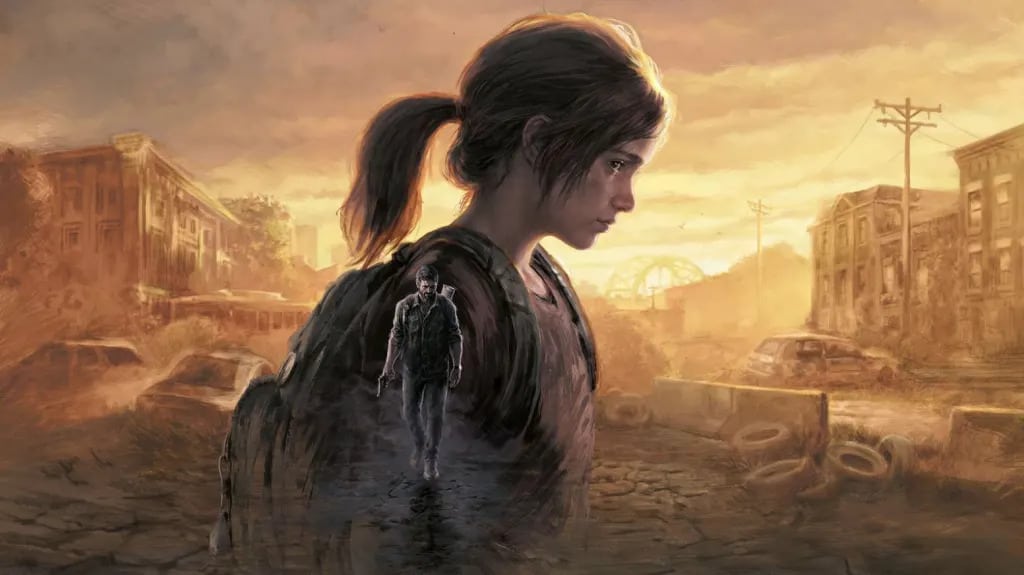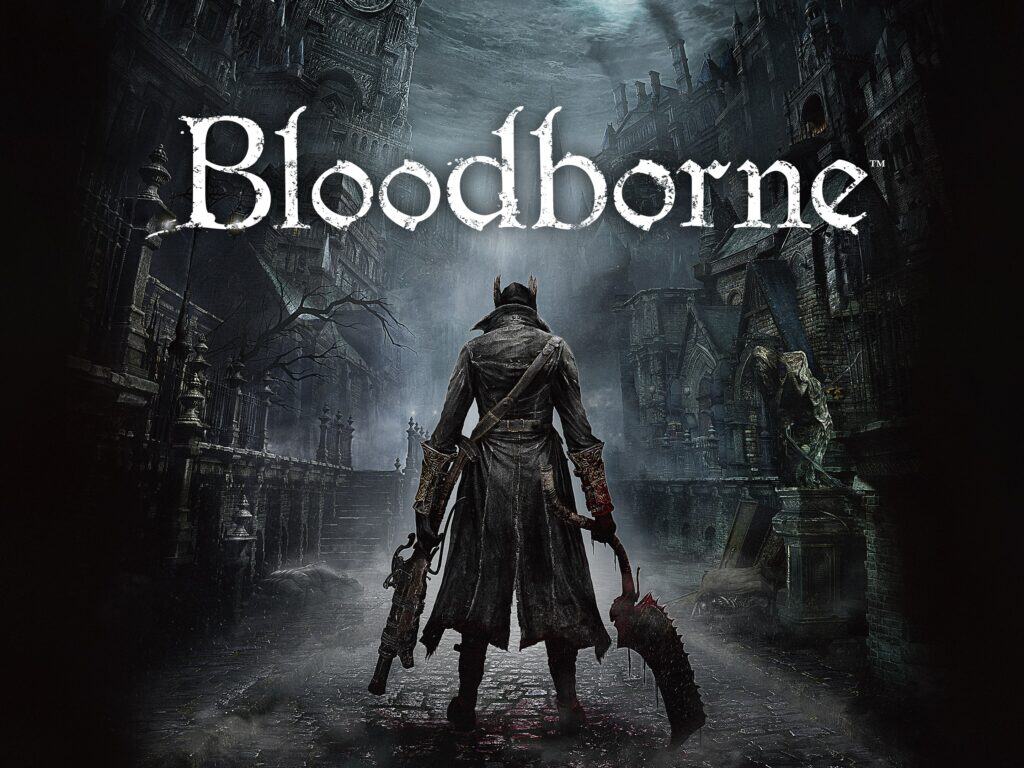At their core, games are about the verbs that they facilitate. The key component of what defines the player experience are the things they can actually “do”, with everything else in the game serving as a means to facilitate those actions. But action without reason is practically meaningless, which is why video games have become increasingly story-driven as the technology propping them up has continued to advance at an astounding rate. Since the transition into the 5th and 6th console generations, games have continued to emulate (and, in some cases, surpass) the level of storytelling on display in the best films and television shows. Cinematic games are nothing new at this point, but the games with the best plot are those whose stories drive us forward to see how they end, sticking with us long after we put the controller down.
Video games have the potential to tell stories in a way no other medium can thanks to their interactive nature. We don’t just experience these stories as passive viewers, we experience them right alongside our digital avatars. Accordingly, the best plotlines serve a dual purpose. Not only do the best storylines in games propel the player forward to find out what happens next, they also make us stop and think about how we would react if we found ourselves experiencing the on-screen events in the very real world. And, as the narratives of games have continued to advance, the games they belong to communicate important messages about the human condition in the same way that the best fiction novels and films do.
15. Bloodborne
Despite the fact that most of Bloodborne‘s storytelling comes from the environment and item descriptions, it happens to tell an incredibly unnerving tale of cosmic horror on par with the works of H.P. Lovecraft or Robert Chambers. Even without an overt take on the game’s plot, Bloodborne does a great job of communicating that something has gone horribly wrong in the city of Yarnham, and it’s up to the player to somehow put a stop to it. What begins as a mostly straightforward tale about a mysterious blood infection that turns people into beasts transforms into a conflict between factions vying for the definitive say in how to address the plague, with the winner in that battle inadvertently opening a door to a reality that should have remained hidden.
Bloodborne‘s plot strings the player along with just the right amount of revelation while always keeping the mystery at the center of its cosmic horror front and center. As a result, players have the ability to fill in the story’s gaps with their own imagination and experiences from wandering around its fictitious Victorian setting. The world of Bloodborne is one where nightmares become real, and FromSoftware somehow makes it a place that players want to return to time and again in order to learn more about the mystery at its core.
14. Star Wars: Knights of the Old Republic
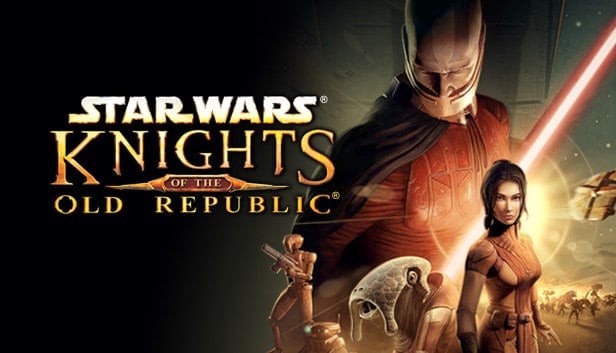
Not only is Star Wars: Knights of the Old Republic arguably the best game set in the Star Wars universe, it also happens to tell one of the best stories in that universe across all mediums. The setup to KOTOR is classic science fiction with a pinch of expert dungeon mastery akin to a great Dungeons & Dragons campaign. Players assume the role of a protagonist that they create and customize before the game begins, awakening on a ship right as it’s under attack by Sith forces. Rather than place the player in the well-known era of the original Star Wars trilogy, KOTOR takes players back to the days of the Old Republic in which the galaxy’s government was aligned with the Jedi as peacekeepers and a war waged between the Light and Dark Sides of the Force.
Like any great D&D campaign, players have plenty of agency over how they interact with NPCs and their adventuring party, making choices that impact the overall outcome of the story. And, right as the game reaches its climax, KOTOR drops one of the all-time greatest twists in gaming by revealing the true identity of the protagonist. It’s a late-game shock that sticks with you all the way to the game’s conclusion while also making you immediately reconsider every choice made along the way. Any game that can do that with its story deserves a place on a list of games with the best plot.
13. Half-Life 2
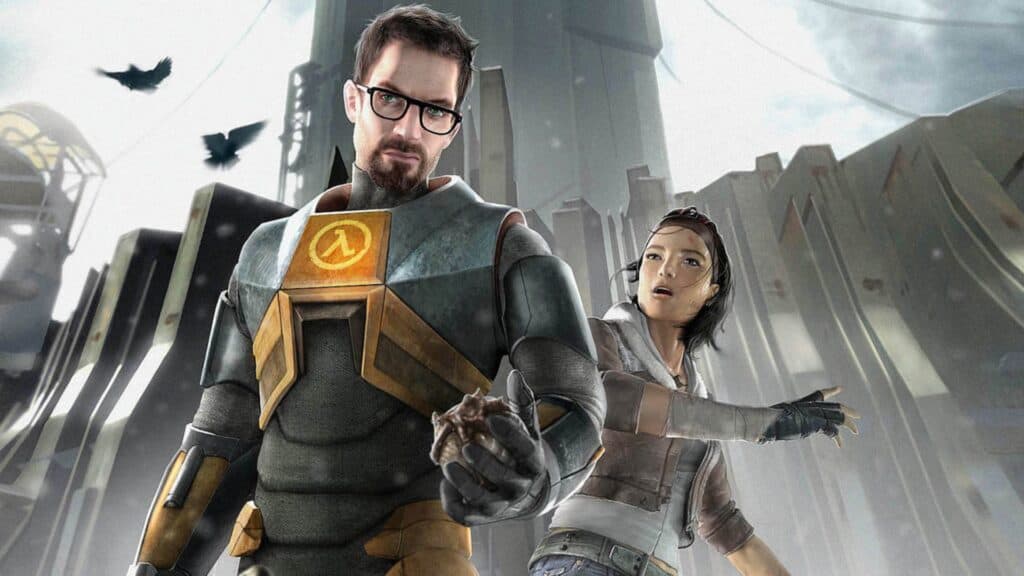
The first Half-Life introduces players to the physicist Gordon Freeman, but its the sequel that shows us just how much of a hero the character truly is. What makes the plot of the original game so great is that, as the player, we get to see Gordon transform from a relative nobody into the person responsible for ultimately saving a large number of lives. However, the aliens still find their way to Earth and invade, establishing an occupation that has reached Orwelian levels of dystopia by the time Half-Life 2 begins. Thankfully, Gordon is still very much the hero that we left him as at the end of Half-Life, and he’s more than ready to take the fight directly to the nefarious Combine to rid Earth of its alien occupation.
Where Half-Life 2 both differs from other games and exceeds them in terms of its storytelling is its reliance on the silent protagonist. Gordon doesn’t ever have any meaningful dialogue, but the characters around him (all of whom are well-written and three-dimensional) all speak with Gordon with the kind of reverence that someone might have if they were addressing a bonafide hero. Half-Life 2‘s ending is also a great example of how to leave things ambiguous enough for players to come up with their own conclusion that fits their interpretation, and it basically begs for there to be a third chapter concluding the Half-Life saga. Ball’s in your court, Valve.
12. Shadow of the Colossus
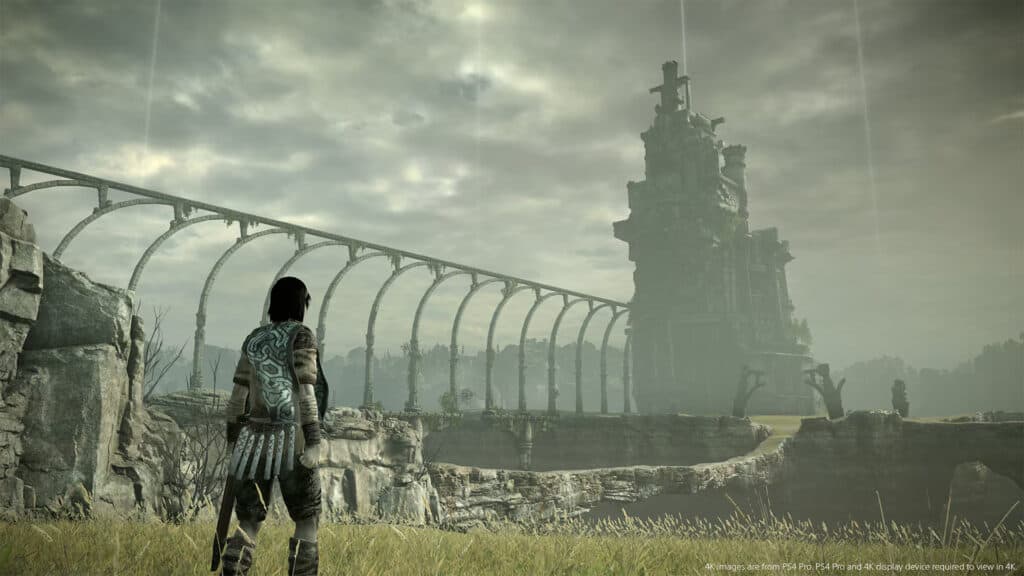
Ultimately, Shadow of the Colossus tells a story about love and the lengths that one is willing to go for it. The game’s protagonist, Wander, enters into a forbidden realm to bring the young maiden Mono back to life. In a tragic twist of fate, the being that can bring her back to life is the very same evil sorcerer who was sealed away in the Forbidden Land generations ago, with the 16 Colossi inhabiting the region being the force sealing away his resurrection. In order to bring Mono back to life, Wander must do the unthinkable and slay all 16 of the Colossi, becoming a demon himself in the process.
Like Bloodborne, much of Shadow of the Colossus‘ story is communicated through environmental storytelling and subtle hints given to the player, but in no way does that make it hit any less hard than it does at the game’s conclusion. In fact, the intentionally ambiguous nature of the game’s story allows players to imprint their own personality and meaning on the events that take place, and Shadow of the Colossus‘ bittersweet ending feels like the only way this tragic tale could have ended with any sense of closure.
11. Silent Hill 2
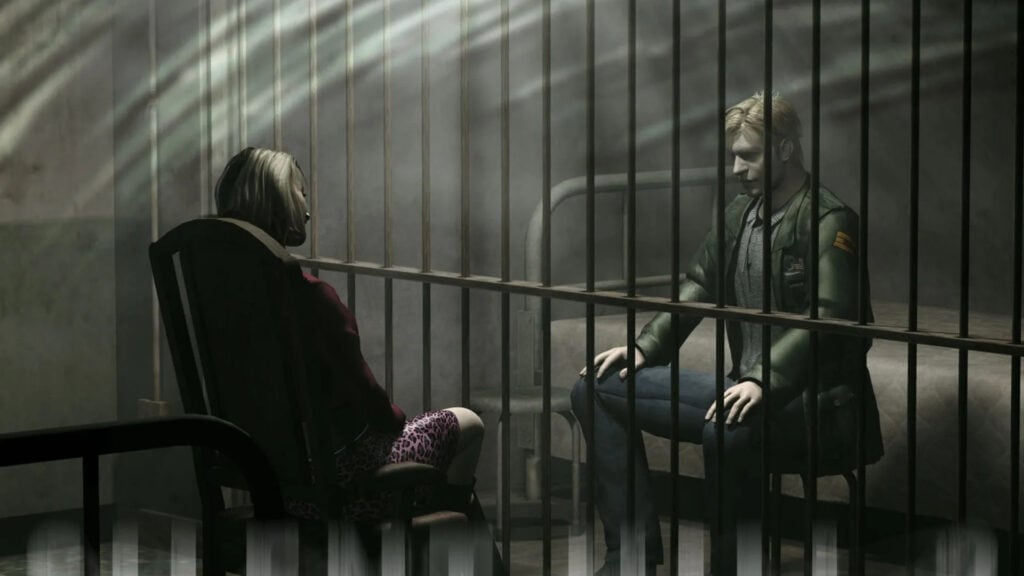
As far as survival-horror games are concerned, Silent Hill has always swung for the fences while Resident Evil is content to let its gameplay take center stage and have the plot be a secondary concern. The first Silent Hill is an all-time classic with an incredible story of its own, but Konami’s decision to tell an entirely different tale with a new protagonist in the sequel is something of a stroke of genius. Players take on the role of James Sunderland, a man returning to the mysterious town of Silent Hill after receiving a letter from his dead wife informing him she’s waiting at their “Special Place” there. Of course, Silent Hill is still a very dangerous place, and simply getting the answers he needs about his wife’s death and whether she’s still alive puts James through an actual living nightmare.
The game’s sickeningly twisted reveals about the fate of James’ wife and the history that the couple have in the town of Silent Hill only serves to heighten the sense of existential dread and psychological horror that already pervade throughout the game. There are no happy endings in Silent Hill 2, and the title takes things one step further by having the canon ending to the game be one where the protagonist dies. Silent Hill 2 is a master class in the psychological thriller, and its refusal to provide any easy answers shows that it takes its tale of grief and guilt seriously.
10. Pentiment
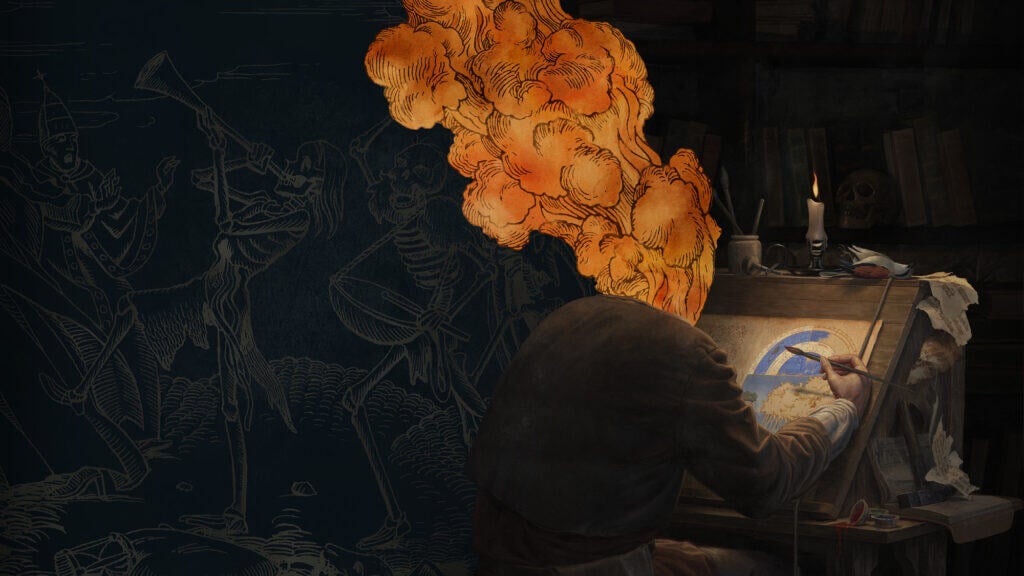
Obsidian Entertainment’s Pentiment is yet another title from the studio proving that they’re one of the best developers in gaming when it comes to thought-provoking narratives in their games. In Pentiment, players assume the role of apprentice painter Andreas Maler as he attempts to complete his masterpiece and become a bonafide master. To do this, he leaves his native Nuremburg and travels to Bavaria, providing players with a genuine look at what life was like in rural Europe during the 16th Century and the beginning of the Enlightenment. Maler works in the local Kiersau Abbey creating illuminated manuscripts in exchange for the space to work on his masterpiece, and it’s there that he becomes embroiled in a decades-spanning murder mystery involving the church, the town of Tassing, and possibly supernatural forces.
It’s the mystery at the heart of Pentiment that makes putting the game down nearly impossible. Sweetening the deal, though, are all the amazingly well-written and believable characters that occupy both Tassing and Kiersau Abbey, making every conversation a fascinating exercise in deduction and observation. By the time players complete Pentiment they will feel as if they’re saying goodbye to a group of people they’ve come to know fondly and personally, and the game’s subtle nods to Umberto Eco’s The Name of the Rose showcase the title’s reverence for historically-accurate fiction.
9. The Witcher 3
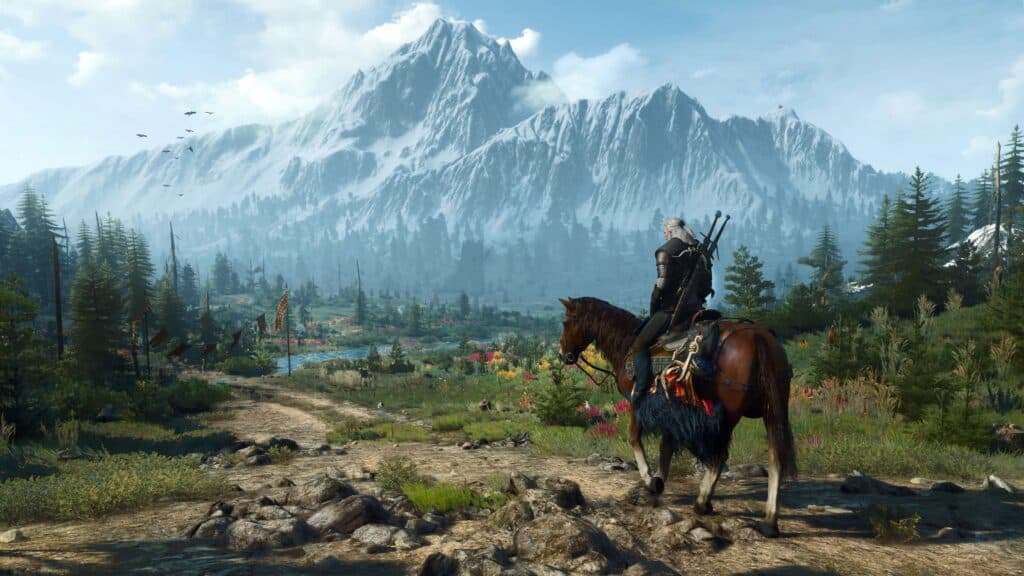
It makes perfect sense for The Witcher games to have amazing plots given their origins as a popular fantasy novel series by Andrzej Sapkowski. The best of the three is The Witcher 3: Wild Hunt, though, as the tale of Ciri and her journey to become a Witcher sees series protagonist Geralt undergo a massive character arc as he takes on the role of being her protector and surrogate father. It’s a phenomenal storyline that smacks of almost all the classic “Hero’s Journey” tropes (with the main exception being the hero already starting off immensely powerful) and it would prove engaging enough to where the Netflix series based on the novels is now building toward the events of The Wild Hunt as a climactic penultimate chapter.
But beyond the main story in The Witcher 3, the game excels in every side story and new plot thread it tackles. It’s not uncommon at all to pursue a side quest that seems innocuous to then end up invested in an hours-long story involving some NPC that Geralt hadn’t even met before he agreed to the errand. Characters are written well and act even better, they have fully fleshed out backstories and motivations, and they respond accordingly to the player’s actions as Geralt. The Witcher 3‘s plot succeeds because it fully immerses the player into a fictional world as the best novels can.
8. Mass Effect 2
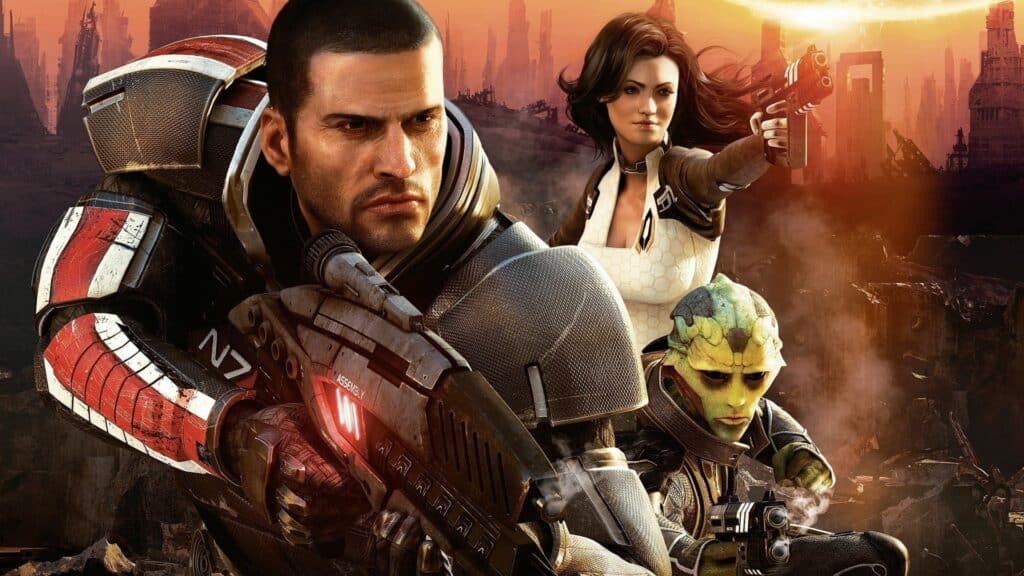
Suppose Mass Effect is a science fiction trilogy on par with the original Star Wars trilogy (which many believe it is). In that case, its pivotal second chapter is absolutely the Empire Strikes Back of Shepard’s quest to stop the Reapers. Like the phenomenal and groundbreaking second chapter in George Lucas’ original trilogy of Star Wars films, Mass Effect 2 begins with tragedy and then ends on a very bleak note. However, through that gloom shines a single ray of hope, that Shepard and his crew’s success in the game’s “suicide mission” means that they just might have what it takes to save all life in the galaxy from the genocidal Reapers.
Between Shepard’s miraculous resurrection and the game’s climactic battle, players are treated to several major developments in the Mass Effect canon in the second entry. First, players get to know the mysterious Ilusive Man, who serves as a human villain every bit as dangerous as the extra-dimensional beings that the heroes are trying to prevent from returning. Additionally, players get to see Shepard bond with his crew and learn more about them, forming the bonds necessary for every last member to pull through the suicidal assault on a Reaper base. Mass Effect 2 is pure science fiction gold, and it ends up being the best part of the trilogy for the same reasons Star Wars fans revere Empire.
7. Final Fantasy IV
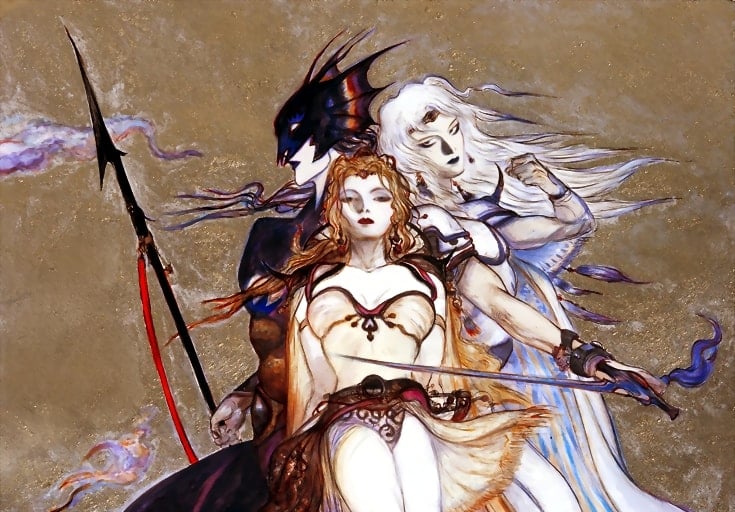
Truthfully, any Final Fantasy entry could be on a list of games with the best plot, as the series has long been synonymous with some of the greatest storytelling in gaming. However, when it comes to narrowing it down to just one entry in the series, Final Fantasy IV ultimately takes the cake for its incredible and heartfelt story about hope, loss, redemption, and love. The game’s protagonist, Cecil, is a textbook character out of a classic “Hero’s Journey”, embarking on an adventure from which there might be no return in hopes of transforming himself into someone worthy of protecting the people he loves. Cecil’s best friend Kain is initially along for the journey before he falls under the sway of the game’s antagonist, becoming a continual source of hurt and frustration for Cecil afterward.
And that’s without even mentioning the love triangle that exists between these two friends and the woman in love with Cecil, Rosa (whom Kain harbors a not-so-secret affection for). With the late game reveal that Cecil’s parentage makes him an alien and that the game’s antagonist is none other than the hero’s long lost brother, Final Fantasy IV is soap-opera level drama dressed up in a high-fantasy setting, and it’s also one of the most enjoyable and entertaining tales the series has ever offered up.
6. Baldur’s Gate 3
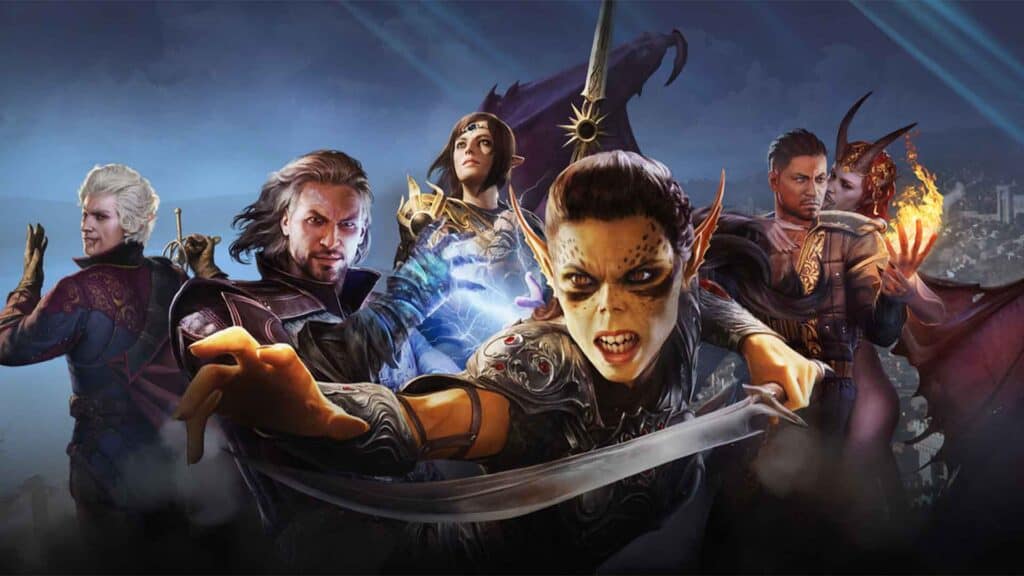
Just like the first two Baldur’s Gate games, the groundbreaking third entry in the series (and Game of the Year award winner for 2023) excels by knowing its source material intimately. The world of Dungeons & Dragons is one where nearly anything is possible, and Baldur’s Gate 3‘s gameplay pulls off an almost impossible feat by making nearly any outcome viable in the context of its adventure. The RPG systems at play allow for any number of narrative branches, but it’s the smaller, more human moments along the way that showcase why Baldur’s Gate 3 and the game’s characters have struck a chord with so many fans.
What makes the plot of Baldur’s Gate 3 so great will be completely different from one player to the next. And that’s the point. Each playthrough has the potential to wind up in some completely different territory from the one preceding it or succeeding it, and getting to carve out a deeply personal adventure reflective of the player’s time with the game and the choices they make along the way (as well as a few lucky rolls here and there) means that Baldur’s Gate 3‘s plot is unique from person to person.
5. God of War (2018)
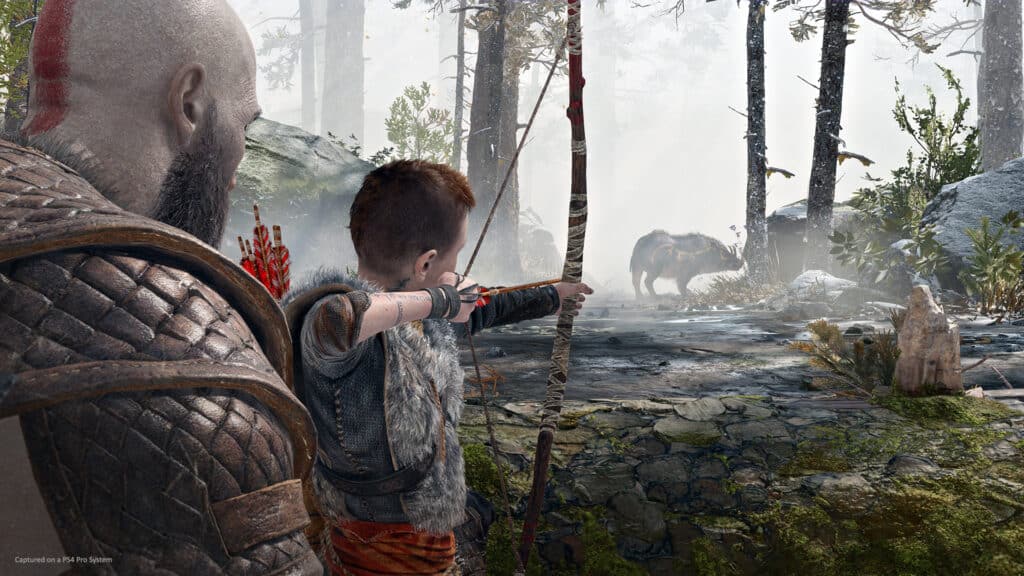
Players who experienced Kratos’ initial trilogy of games on the PlayStation 2 and PlayStation 3 were likely not expecting the series’ reboot to tell a story of a more human Kratos, but the truth is that his heart has always been geared toward family. The tragedy of Kratos begins with the loss of his family due to the trickery of the gods, and after becoming a god himself and dismantling the pantheon of Mount Olympus, Kratos heads to the north. It’s here in the land of Norse mythology that Kratos once again finds himself at the center of a heavenly conflict between deities, but he also is a father again. That relationship between Kratos and his son Atreus is the core of God of War, and it’s also precisely what makes the game so special.
As players, we never forget who Kratos is or what he’s capable of, and the other characters in God of War do a great job of dropping subtle hints that they know exactly what kind of monster he is. But to Atreus, Kratos is the stern but loving father he’s always known, and to protect Atreus from the sins of his past Kratos proves willing to do almost anything. God of War‘s tale of family, love, duty, and redemption is a much more mature narrative for a series whose beginnings just involve wanton acts of senseless violence and a shortsighted quest for revenge.
4. The Last of Us
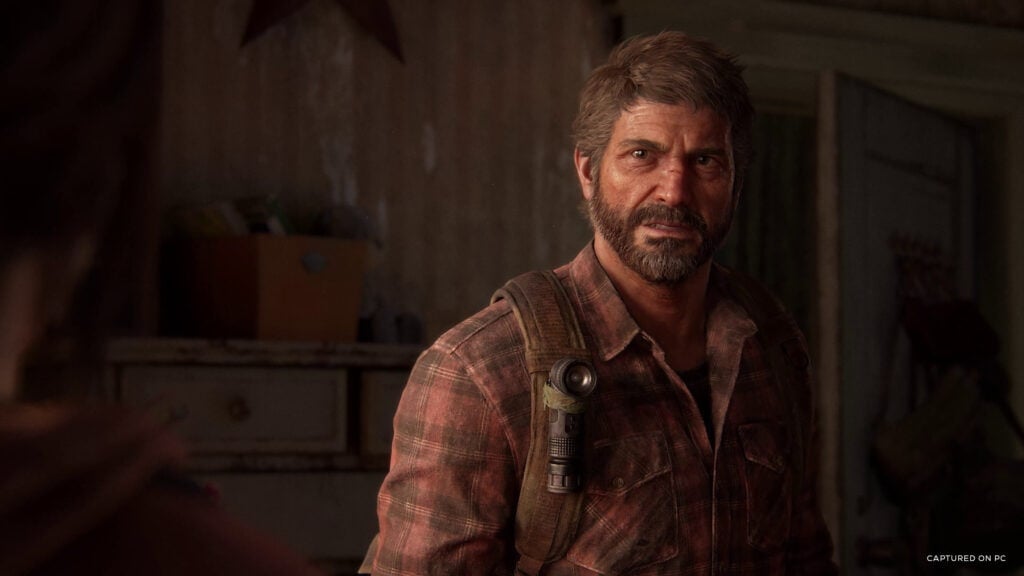
©The Last of Us Part I gameplay – License
Like The Witcher, The Last of Us‘ plot and storytelling are so masterfully done as to successfully translate into a popular television series. Long before its live-action adaptation, though, The Last of Us would prove that Naughty Dog are masters of their craft at developing compelling, cinematic video games. The prologue to The Last of Us alone is enough to completely devastate the player, and that we pick back up years later with the knowledge of why Joel is so broken and defensive only serves to endear us to the character more. Having already lost a daughter, Joel takes his mission to protect Ellie seriously, eventually seeing the bond between the two deepen to something not all that different from father and child.
But outside the compelling and well-written development and relationship between Joel and Ellie growing to trust and rely on one another, The Last of Us‘ depiction of the apocalypse is one that feels startlingly real. The infected aren’t the only threats to worry about in the wasteland of post-apocalyptic America. And often, it’s the human element that poses the greatest threat to the game’s twin protagonists and their world-saving mission.
3. Chrono Trigger
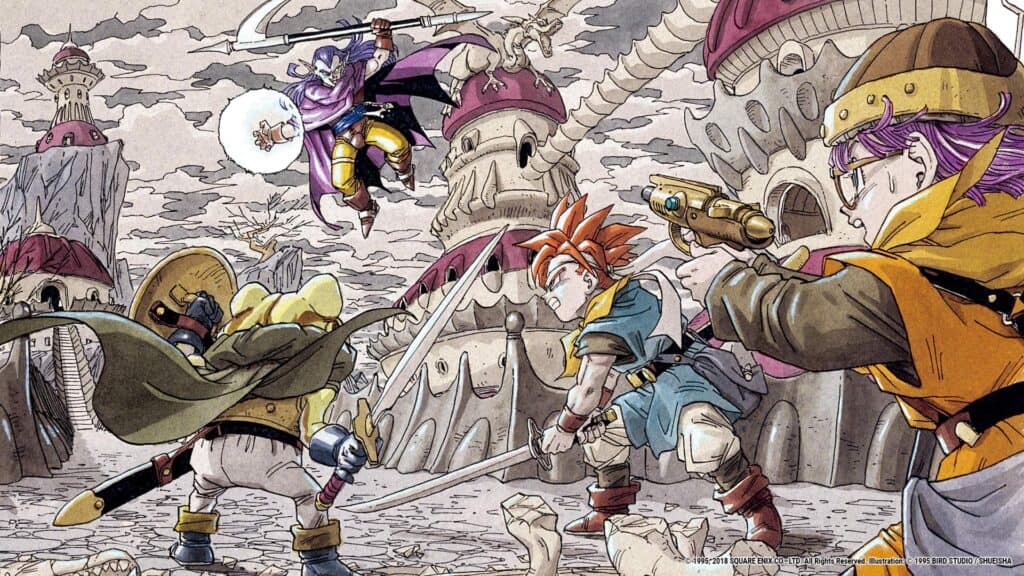
Square’s legendary Chrono Trigger makes use of its incredible superstar development team to deliver one of the best narratives in games, RPGs, or otherwise. The tale of Crono and his friends traveling across time itself to save humanity gives genuine stakes to what initially comes off as a lighthearted standard RPG setup. Eventually, the game goes to some incredibly dark places as the main party struggles to retain hope in the light of seemingly insurmountable odds. Chrono Trigger mixes fantasy and science fiction just like Final Fantasy, but it does so with a much more human and personal touch that sees the player form a deep bond with the game’s characters and genuinely care about their success.
The anchor to all of this is the game’s protagonist. Even though Crono is silent, his endless optimism and willingness to jump in and save his friends without hesitation make him one of the greatest heroes in video games and a perfect lynchpin to the party’s mission. When Crono appears to die, it’s one of the most heartbreaking and shocking moments in the game, only to then be quickly replaced with true relief and emotional reunion with the party when the player alters reality itself to bring him back. Few games can make the player care about their characters as much as Chrono Trigger does.
2. BioShock
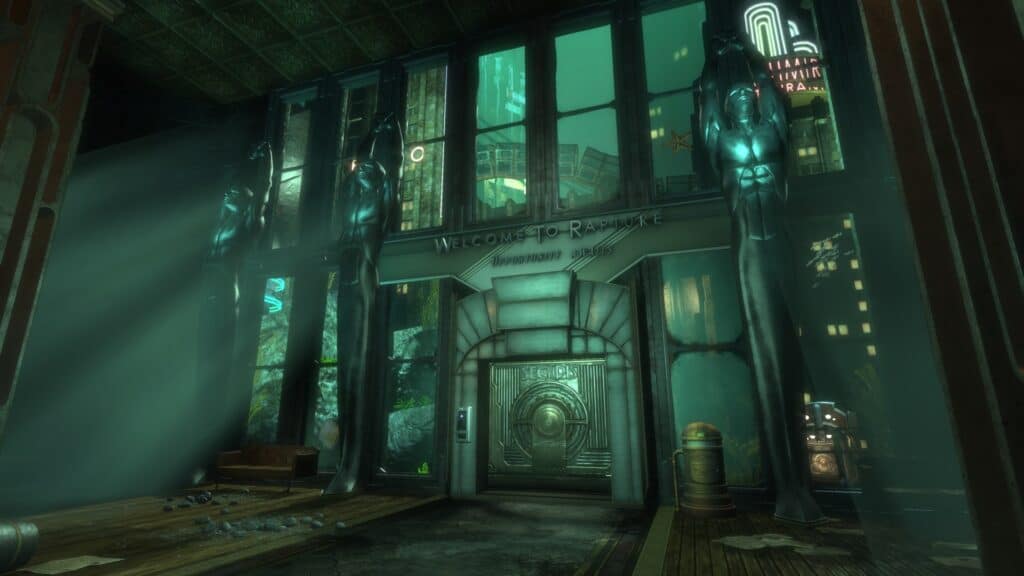
BioShock brilliantly draws on the literature of Ayn Rand and early 20th-century populist thought to provide an interesting case scenario. What happens when libertarianism is taken to its utmost extreme and all limits on science, technology, and economics are removed? The answer to this question is, of course, the underwater city of Rapture. A place where making can thrive without the watchful eye of a corrupt government regulating and intervening in the noble act of progress. What starts out as a utopian ideal quickly descends into a living hell, turning the once prosperous Rapture into an underwater tomb.
This is the world that the protagonist enters, navigating the strange fallen utopia with guidance from a mysterious benefactor and picking up clues along the way that reveal the unfortunate fates of its citizenry. Like Knights of the Old Republic, players spend most of the game believing in one version of events only for BioShock to pull the rug out from under them in the game’s final moments and legendary twist. The BioShock series contains some excellent stories that each rank as some of the more thought-provoking FPS games in history, but the first is still the best.
1. Metal Gear Solid
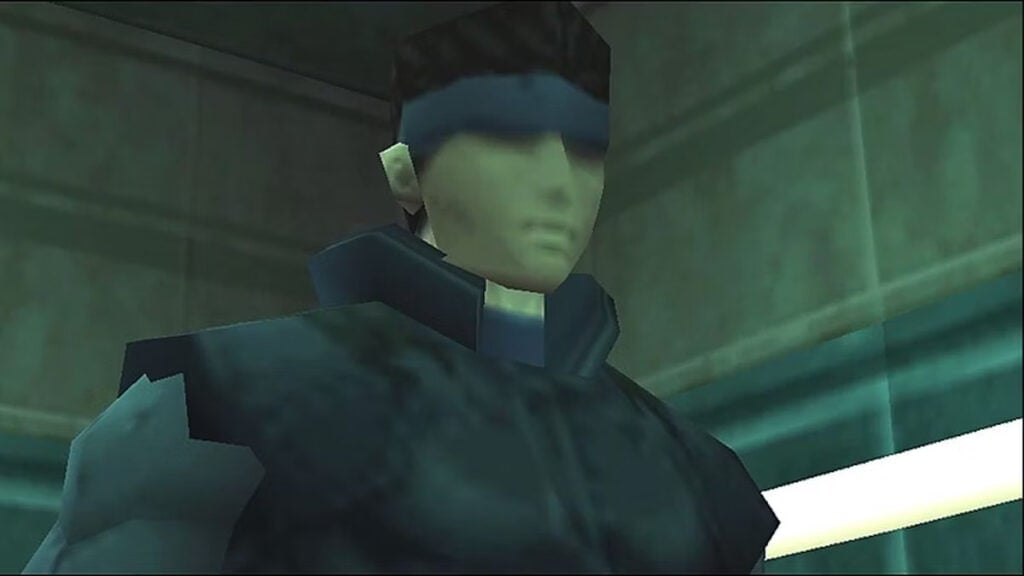
That Metal Gear Solid would tell a relevant story about the horrors of nuclear proliferation and also somehow foreshadow the geopolitical realities of today more than 25 years ago is proof positive of the game’s timeless narrative about war, what it means to be a soldier, and the dangers of an unchecked military-industrial complex. Solid Snake’s mission on Shadow Moses island is so integral to the entire Metal Gear Solid canon that it becomes an event that every game in the series (except the third and fifth entries where players control Big Boss) refers to, culminating in the pivotal return to the abandoned base in Metal Gear Solid 4. Before the series’ plots became ever more convoluted and wrapped up in the mystery of the Patriots, Metal Gear Solid would tell a relatively straightforward tale of one man on a mission to stop the bad guy.
The “bad guys” that Snake encounters as part of completing that mission stands as one of the greatest rogues galleries in all of gaming, with each member of Fox Hound getting their own rightfully deserved place in the spotlight. Metal Gear Solid’s somewhat overreliance on dialogue and exposition is a product of the game’s arrival at a time when virtually nothing else like it existed, but its incredibly complex and interesting narrative has helped it withstand the test of time as a game that comments on important issues while even providing a bit of meta-commentary on the medium of video games itself.
The image featured at the top of this post is ©The Last of Us key art.
